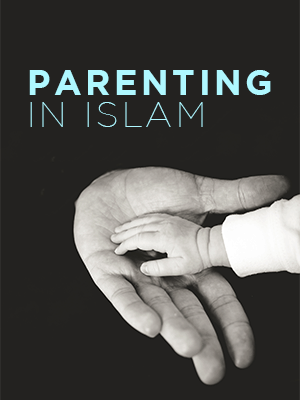Do I have to Obey my Parents if they Order me To Leave Sunnah Acts?
Answered by Ustadh Shuaib Ally
Question: Assalamu alaykum wa rahmatullahi wa barakatuhu,
Since the beard is sunnah and not wajib in the Shafi’i madhhab, I was wondering what the ruling was for following/performing sunnah acts when parents forbid it without a good reason?
Answer: Assalaamu ‘alaykum wa rahmatullah,
Dealing Righteously with Parents
Dealing well with one’s parents is an Islamic principle; dealing poorly with them, sinful. The Qur’an says: Worship Allah; do not join anything with Him, and be good to your parents (4:36); and: Your Lord has commanded that you worship none but Him, and that you be kind to your parents. If either or both of them reach old age with you, say no word that shows impatience with them, and do not be harsh with them, but speak to them respectfully. Lower to them the wings of humility towards them in kindness and say, ‘Lord, have mercy on them, just as they cared for me when I was little’ (17:23-4).
The Prophet (peace be upon him), in a Hadith narrated by Anas (may Allah be pleased with him), also described the major sins as associating others in worship with Allah, and dealing poorly with one’s parents (Bukhari).
General Principle of Obedience
The general principle is to obey one’s parents in matters that do not entail disobedience to Allah or His Messenger: ‘If they strive to make you associate with Me anything about which you have no knowledge, then do not obey them. Yet keep their company in this life according to what is right…’ (31:15).
There are, however, other situations in which it is permissible to disregard parental orders:
Recommended Acts
It is better to not leave off recommended acts if your parents order you to do so – such as keeping the beard in the Shafi’i school, or other sunnah acts. That being said, this should be done while maintaining mutual love and kindness.
Permissible Acts
It is better to obey one’s parents if they order you to do, or leave off, something that is permissible. It is, however, not considered sinful disobedience to disobey or disregard a parental order or prohibition regarding something that
– Does not harm or does not entail negative consequences for the child, or;
– Falls under the general rubric of advice or preference, or;
– Is generally considered silly or unreasonable, or;
– Doesn’t have a very good reason behind it
– Disobeying it would not be considered to constitute undue hardship for them
An example of an order that does not have to followed in a permissible matter is a parental order to divorce one’s wife. An example of a prohibition that does not have to be followed is preventing one from traveling for the sake of knowledge.
Additional Guidelines
The above constitute general guidelines. Disregarding parental advice, if one must, should be done in a manner that is respectful, maintains ties, and seeks to please. It is not permissible in a manner that is harsh, disrespectful, or abusive.
Furthermore, interpersonal relations are highly dependant on time, circumstance and custom. Different scenarios will necessarily demand varying courses of action, which can only be determined by knowing these circumstances, as well as a healthy dose of common sense.
Source: Al-Zawajir
Shuaib Ally
